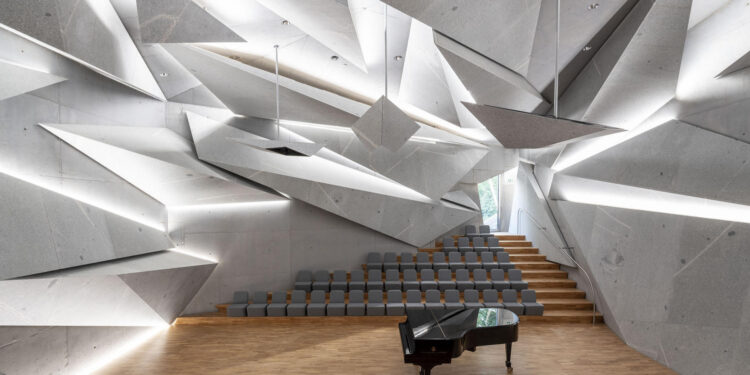Sustainable building practices often focus on energy efficiency, green materials, and carbon reduction. However, acoustic considerations are often overlooked. Acoustic engineering, or sound engineering, is the science of controlling sound and vibration in various environments. In architecture, acoustic engineering services involve strategically manipulating architectural design, materials, and technology to reduce noise and create optimal acoustic conditions in construction.
How Can Acoustic Engineering Help Advance Sustainable Architecture?
Acoustic engineering is a crucial discipline in sustainable architecture, focusing on sound and vibration management. It contributes to energy efficiency by reducing HVAC system noise, resulting in quieter, more energy-efficient systems. Acoustics plays a significant role in building design, allowing architects to optimize airflow and natural lighting, reducing the need for artificial lighting and cooling systems. An acoustic engineer also chooses materials based on acoustic properties and sustainability, such as using recycled or eco-friendly materials to reduce environmental impact while increasing acoustic performance.
How Can Energy Efficiency Be Increased with an Effective Acoustic Design?
Acoustic engineering is a vital aspect of sustainable architecture, focusing on sound and vibration management. It enhances energy efficiency by minimizing HVAC noise, optimizing airflow and natural lighting, and using sustainable materials. Acoustic engineering also improves indoor environmental quality by designing spaces with appropriate background noise levels, enhancing productivity and well-being. It also optimizes acoustic conditions for clear communication and reduces the need for loud voices, benefiting both people and the environment.
What Is the Crucial Connection in Construction Between Acoustics and Energy Conservation?
Acoustics is the study of sound and its behaviour in various environments, particularly in the construction industry. It involves controlling and manipulating sound to achieve desired results, such as reducing noise pollution, improving speech intelligibility, and optimizing audio quality. Acoustics not only creates a pleasant environment but also significantly impacts energy consumption, making it a critical consideration for architects, engineers, and construction professionals. Balancing acoustics and energy conservation involves implementing strategies like insulation, daylighting, ventilation, and renewable energy.
Why Is Taking Acoustic Factors Into Account Essential to Reaching Sustainable Building Objectives?
Acoustics is a crucial aspect of sustainable building design, enhancing occupant well-being, energy efficiency, and sustainability. By addressing noise concerns, using sound insulation materials, and implementing advanced technologies, we can create spaces that provide comfort, productivity, and tranquillity. This not only enhances the built environment but also promotes a healthier, more sustainable future. Therefore, incorporating acoustic considerations is vital for future cities.
Summary
The construction industry is shifting towards sustainable practices, emphasizing the importance of acoustics in energy conservation. By incorporating acoustics into construction, buildings can improve energy efficiency, occupant comfort, and environmental performance. This understanding allows an architect and acoustic engineer Adelaide, to design spaces that are both aesthetically pleasing and optimized for energy efficiency and comfort. By incorporating sound insulation, ventilation, and renewable energy sources, buildings can reduce energy consumption and environmental impact.
Are you searching for acoustic solutions for your building project? Building Services Engineers, or BSE’s Acoustics team, offer innovative services, integrating with design solutions to enhance projects’ usability. They consider client requirements, implementation, and budget, providing exceptional solutions for entire buildings.









